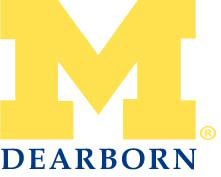
 College freshmen are more prone to e-dishonesty practices than upperclassmen, according to a survey by University of Michigan-Dearborn researchers.
College freshmen are more prone to e-dishonesty practices than upperclassmen, according to a survey by University of Michigan-Dearborn researchers.
Other findings indicate that field of study may influence e-dishonesty practices, as well as personal factors affecting individual students.
The complete study will be the topic of a UM-Dearborn School of Education research colloquium at 4:30 p.m. this Wednesday, Sept. 28 in Room 252 of the campus’s Fairlane Center South Building, located off of Hubbard Drive.
Mesut Duran, associate professor of technology and associate dean of research and administrative affairs in the School of Education, conducted the survey with Robert Fraser, associate director for scholarly resources at UM-Dearborn’s Mardigian Library, and Serkan Sendag, visiting professor from Mehmet Akif Ersoy University of Turkey. Both Duran and Fraser will present at Wednesday’s colloquium.
E-dishonesty refers to unethical behavior--like fraud, plagiarism, falsification, delinquency and unauthorized help--through information and communication technologies. Recent studies show that the use of computers and the Internet enables the spread of academic misconduct, especially e-dishonesty.
Duran, Fraser and Sendag surveyed 1, 153 students on the UM-Dearborn campus last fall to examine the extent of university students’ involvement in e-dishonesty practices as well as the rationale behind participating in such practices.
Of all the graduate and undergraduate surveyed:
- More than 3/4 claimed they did not engage in e-dishonesty practices
- 12 percent admitted using materials and references fraudulently, distorting the original meaning of an Internet source and favoring his/her own point of view
- 11 percent admitted to plagiarism at least once
- 15 percent admitted to falsification at least once
- 1/5 admitted delinquency
- 2 percent admitted to renting or buying an assignment or paper from an Internet paper mill
Although the study found freshmen to be most prone to e-dishonesty, their involvement subsided as they moved into their sophomore and junior years—yet increased again during their senior year.
“Since the survey was administered last year early in the fall semester, freshmen may be reflecting on their high school experience,” Duran said. “Taking that into account, it may indicate that many first year college students arrive with a lack of education about the nature and importance of academic integrity at the university level.”
Students studying education and social sciences reported being the least involved in e-dishonesty practices, with engineering and physical sciences the most. Completing the university's academic integrity tutorial did not significantly affect e-dishonesty practices while taking online or hybrid courses had some significant effect on e-dishonesty.
Why do students cheat? Personal factors played the biggest role in determining whether or not to cheat. More than two-fifths claimed either overwhelming assignments or an attempt to complete assignments last minute as their primary rationale for e-dishonesty. Nearly 32 percent said un-motivating assignments, feeling incompetent of the subject or a desire to receive a higher grade for their actions is why they cheated.




